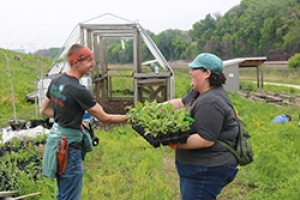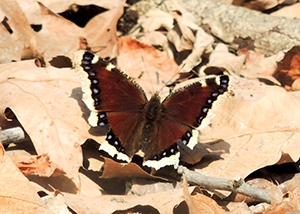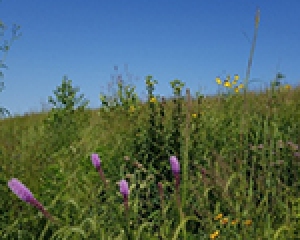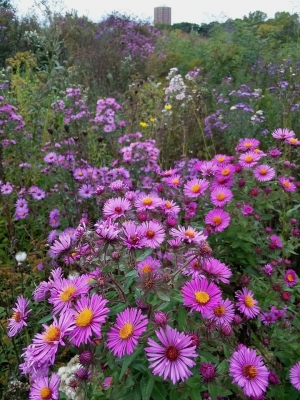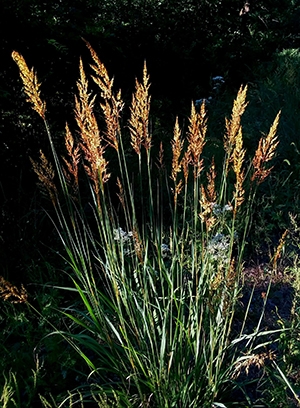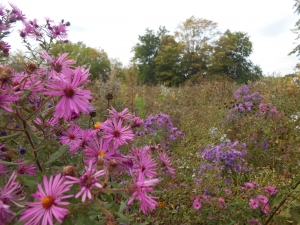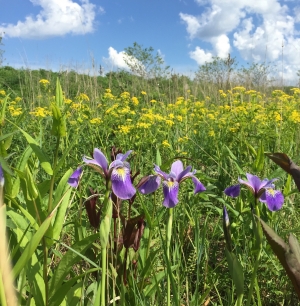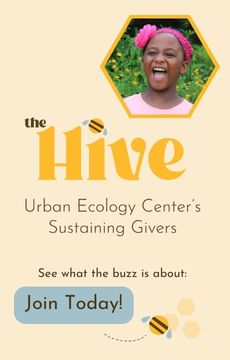
Community Planting Day Update
Community Planting Day has been held in the Menomonee Valley since 2008. It’s inaugural planting day was organized by Menomonee Valley Partners to help plant and establish native plant communities within Menomonee Valley Community Park. Which at the time was a newly constructed 6-acre rain garden that was designed to retain stormwater from adjacent businesses and help reduce the volume of stormwater entering Menomonee River.
Spring Garden Cleanup: Mind the Wildlife!
Spring is a time of returning sunshine, new beginnings, and getting our gardens started! While we're enjoying getting outside and preparing gardens now more than ever, we know it's important to be mindful of the critters who have been overwintering in this space. Here's some insight on spring gardening in harmony with native wildlife and plants from Urban Ecology Center Assistant Land Steward Drew Vandegrift.
Three Bridges Park: Six Years in the Making
Over the past six years, 24 acres of land near our Menomonee Valley branch were transformed from brownfield to outdoor recreational greenspace along the southern bank of the Menomonee River. Today, people know this area as Three Bridges Park! Where a series of train tracks and piles of rubble once stood, native plant species now flourish and birds, mammals, frogs, toads, butterflies and dragonflies call this park home again.
Native Plants: New England Aster & Downy Gentian
New England Aster (Symphyotrichum novae-anglea) is one of the most common native asters and when covered in one inch diameter flowers, it's also one of the showiest. This member of the daisy/sunflower family grows in a variety of soil types and moisture levels and is well adapted to disturbed areas like roadsides and young prairie plantings where it can be a dominant species.
Native Plants to Know: Indian grass
The Tallgrass Prairie ecosystem is both the most biodiverse in northern North America and one of the most endangered with 1% or less remaining. It is full of a wide variety of beautiful grass species and yet we industry continue to produce and market primarily nonnative grasses from Europe and Asia which do not contribute ecologically and have the potential to become invasive species. It is both patience trying and heartening to see more of our native grasses very slowly gaining traction in the landscaping industry including beautiful Indian grass (Sorghastrum nutans).
Wisconsin drought resistant plants
Has the weather lately left you feeling parched yet sweaty? Us too, but we can hardly stay inside knowing Autumn’s flower and foliage color display is on its way. While the weather remains unseasonably warm and minimal if any rain is in sight, many of our Wisconsin native plant species can take the heat as well as the drought conditions.
Naturescaping Design Principles
People around the country are joining in on the growing native plant gardening movement. In addition to providing a multitude of vital habitat components for wildlife, native grasses, sedges, wildflowers, trees, shrubs, and ferns also conserve water, are less maintenance than majority of ornamental cultivars, and save money in multiple ways.
Yet, even with all these benefits it can be challenging to work through the many stigmas that have come to over shadow Naturescaping.
Copyright © 2023 The Urban Ecology Center

